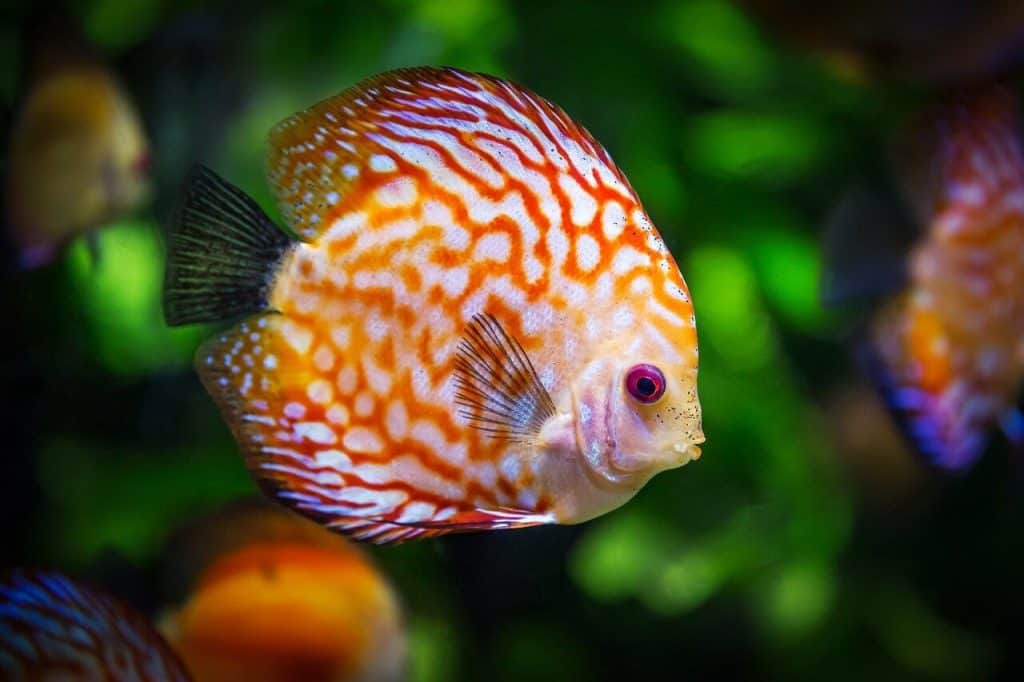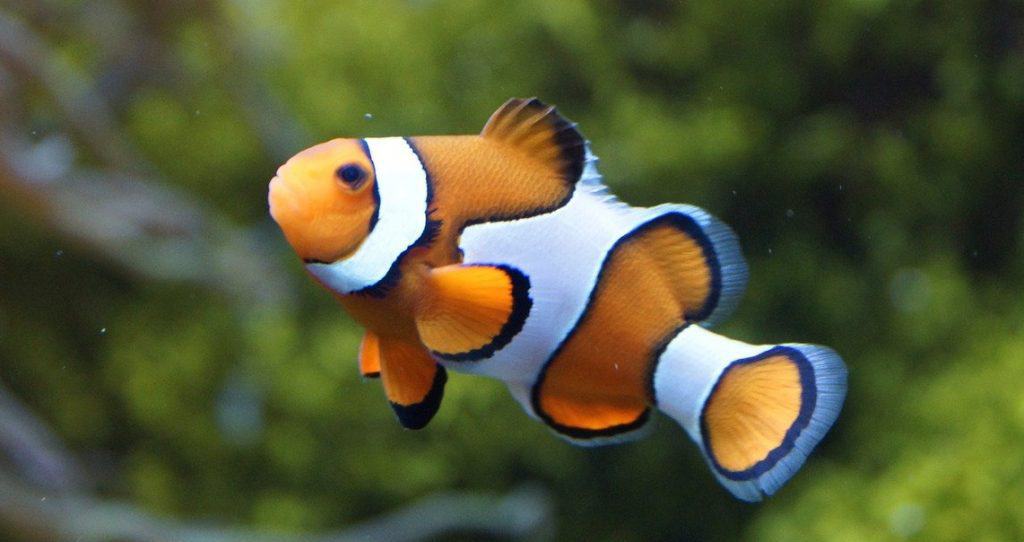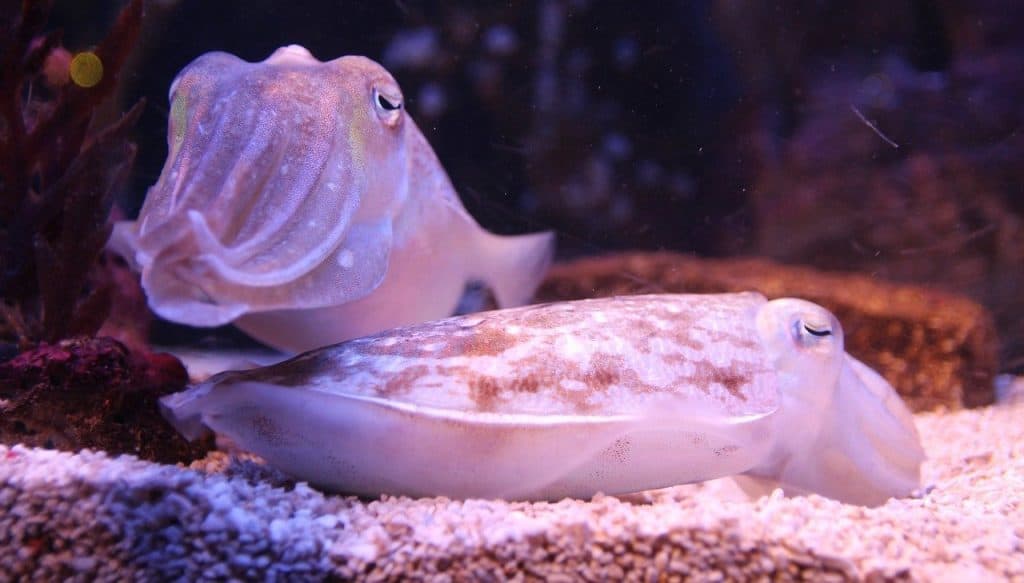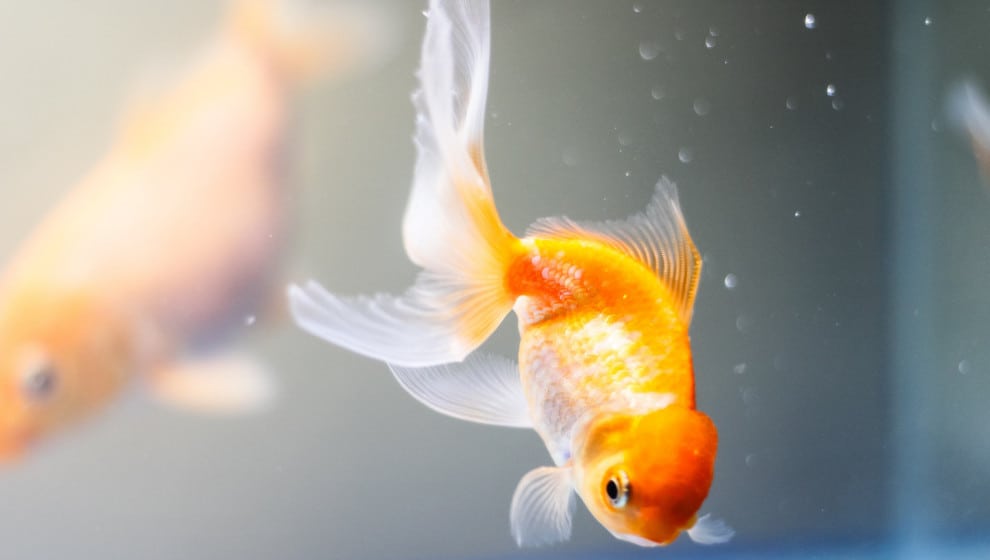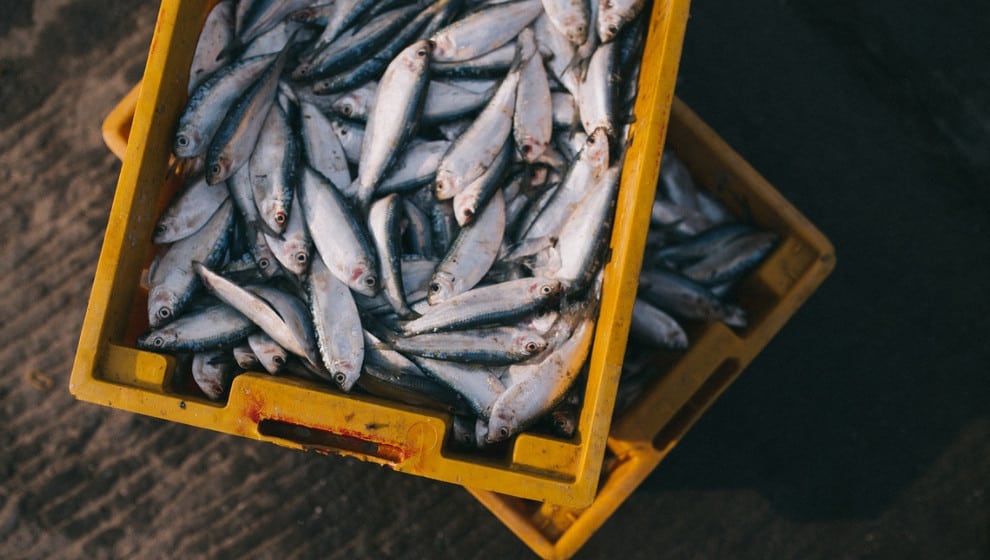Have you ever noticed your fish lurking anxiously in its tank? Or you may have observed a gloomy depressed and indolent behaviour soon after you have removed some fellow fish from the tank? The same behaviour is aggravated when a fish dies in the same tank in front of its fellow fish.
You may have a lot of question and must be worried about your pet goldfish. You may be wondering if fish have feelings too or if they can get depressed.
Continue reading to learn a lot more than you knew about fish before!
Table of Contents
Fish Are Emotional Beings!
Yes, you read it right. Fish are emotional beings and they do develop feelings for their fellow fish and their surroundings. So, when you try to move them out of their comfort zone or change her partners, they exhibited a lot in its behaviour.
According to multiple types of research done at aquatic animals,
Fish can feel depressed too. This mental state is manifested a lot in its behaviour including a lack of motion, a change in expression, a change in feeding pattern, slothful behaviour and so on.
Do Fish Get Sad When Other Fish Die?
Yes, they do. When any fellow fish or living creature living in the same tank as your pet fish dies it can affect it too!
Your fish can do into sudden depression and start acting ill. The behaviour is not honed even after two to three days making you feel if it has stopped living anymore.
The situation worsens when you shift the environment of the fish right away. Fish are likely to get into depression as human over the death of their fellows, changed environment, lack of activity and so on.
Let’s talk about why fish get into depression upon the death of its fellow fish.
Fish Love Each Other:
Researchers of many noble institutes have worked a lot on aquatic life, especially small aquatic animals including fish. They have concluded that fish are more intelligent than we can expect them to be. They recognize and love each other.
Their information transferring source is amazing more close to that of humans!
Yeah, the difference in mode still lies. Fish gather and transfer information and contact each other through eavesdropping. They can remember you. Moreover, they can recall all the past social interactions with their fellows and how good their relationship was with them individually.
Interesting, right.
They also have developed many ways to show their affection. One of the primary ways is rubbing their bodies with each other more like hugging as humans do!
So, now you get why your fish is acting gloomy when its fellow fish is no more.
Fish Have Pain Sensations:
Fish have a centralised complex nervous system. The pain stimuli reach directly to the brain. The body show response by increasing muscle contraction, working on breathing rate, and deepening their will to escape.
Dr Donald Broom worked a lot on aquatic life especially fish and have been appointed as a scientific advisor by the British government. He states,
“The nervous system of fish is a lot similar to that of mammals,” he continued, “both anatomically, biologically and psychologically.”
Julian Pittman, a professor teaching environmental sciences at the University of Alabama said that the neurochemistry of a fish is similar to a scary extent. The professor worked with a tiny zebrafish and concluded that these are super complex and intelligent organisms least recognised for their intelligence.
The pain in fish studied in various experiments not only account for that physical pain but also that of psychological one similar to heartbreak in humans.
Wonder if you know this or not, fish can feel a heartbreak too! They are affected by the change of behaviour or their fellow fish, or surroundings etc. Be careful while dealing with these little sensitive creatures. They can instantly go into a sudden depression.
YOU MAY BE CONTRIBUTING TO EXTENSION OF TROPICAL FISH!
Whenever you are buying a fish, especially the tropical one that are known to be
the most social of the lot, you are disturbing the whole habitat. Not only the fish
left in open ecosystem are disturbed but also one you bought lost its potential.
Moreover, you are also supporting the people capturing them to fill the open
mouths of aquatic pet industries. The number is never sufficient to suffice their
greed!
No More Race Continuity:
Fish can be depressed by its lack of ability to continue its race due to unavailability of another partner. They capture more than 20 million fish every year just to feed fish pet markets and earn revenue up to 300 million dollars unaware of the fact that it can play havoc with these little creatures. Fish not only those you brought in the tank but also that escaped from your net are affected by the unnecessary intrusions. This detrimental hobby has turned
Banggai cardinalfish went into the list of endangered specie…just to satisfy the thirst of big aquariums out there.
So, if you are bringing a fish from a pet market do not forget to get them in pairs. Make them survive and grow happily. Get more than one pairs if you can go with that. Get at least a pair of a single species.
Fish Are Social Creatures:
Fish are super social creatures. They communicate, talk, alarm, gossip and so on… They do all what human do. The difference is that they do so in inaudible sounds. The frequency range lower than human audible range so, we never understand what they chat.
We humans have been scientifically justified to have fish ancestors. Most of our features point to that similarity in ancestors line such as hinged jaws. Fish were first to develop spinal cord, skull and teeth. So, this much similarity points to behavioural similarity too!
A study conducted by multiple behavioural ecologists in the University of Bern, Switzerland claimed that fish have the most complex social circles the man could have ever discovered. You see them talking with each other, helping each other in difficult situations, cooperate for a mutual task and list continues.
So, when they lose their partners they become sad. Sometimes the situation aggravates to the extent that it can lead to depression which can become the cause of its death.
Now, you must be curious to know what actually is fish depression and if it is proven scientifically.
Depression In Fish:
Your fish and other aquatic pets are likely to face depression over one reason
or other.
According to Dr Pittman who worked a lot on aquatic life in a quest to find an effective treatment for human depression said in his article published in The New York Times,
The level of depression by a fish is exhibited by the time it spends in the bottom of the tank. However, if it comes back to the top, move a lot around or swim randomly like strolling to discover its environment it has come out of its depression; and living as happy and calm.
He then precisely explained a depressed fish as same as a human who lost any interest in his life. He said,
“You can tell depressed people are withdrawn and the same goes for fish.”
A study in Sydney precisely covered that depression in small aquatic animals including fish can be the result of a change in atmosphere, sudden death or removal of their fellow fish, and lack of stimulation.
The depression in fish can be temporary or permanent. If overlooked it can also cause its death within days.
So, if you saw your fish acting lazy, staying in the bottom of the tank most of the times or being fish, you may say, you need to take instant steps to help your pet comes back its normal life.
Here is how you can help your fish.
What You Can Do To Help Your Fish?
When your fish feels sad after losing her partner or is depressed you can follow the following tips
Bring Another Fish Of The Same Species
Fish are social animals and can never live alone. If you have two fish in a tank and one of them dies, most probably the other also dies in days due to depression. So, the best you can do is buy her another fish of sams race. The most beneficial is to have fish of the opposite gender. So, they may reproduce and are relaxed with that perspective too.
Give Them Bigger Tanks
The worst you can do to a goldfish is keeping it in a bowl. The situation gets even worse when you place two in a single. So, when one of them dies, the other finds nothing to work with and go into depression gradually. Shift the fish into bigger tanks giving it a chance to explore her place more.
Habitat Control
That’s the most important thing that can help your fish come back to normal. Too hot or too cold temperatures release hormones that aggravate the situation. So, maintain optimal temperature. Take care of what you are feeding this little creature. Your attention can work as a whole game changer. Ensure proper filtration and cleaning to avoid any unhealthy components growth in theirs.
Add Fun Parts To The Tank
You can add some fun parts to the tank. It will not only entice your pet’s imagination, but also make her feel more homely, and give her more to explore. Add some plants to fun nibble on or small swim through cages to play. This will not only increase the aesthetic character and reflect your artwork but also provide your little pet with a lot of entertainment. This will help reduce depression and increase mental growth.
Conclusion:
It is never easy to say goodbye…neither for humans nor for cute little fish. Its never chosen and not what we both want. You may be grieved at losing one of your fish but the other little creature inside the same tank may be feeling a lot more alone than you.
So, now you know what I mean. Sometimes we have to take instant steps to protect the things left. The same goes for the leftover fish pets. The pain is so real for both fish and the owner…but you have to go through it. Protect your other pet from going into severe depression and follow the path of its partner.
Work on some simple tips we suggested when your fish starts behaving oddly. Work and continuously monitor progress. If you find nothing is working, consult a professional.
And remember,

